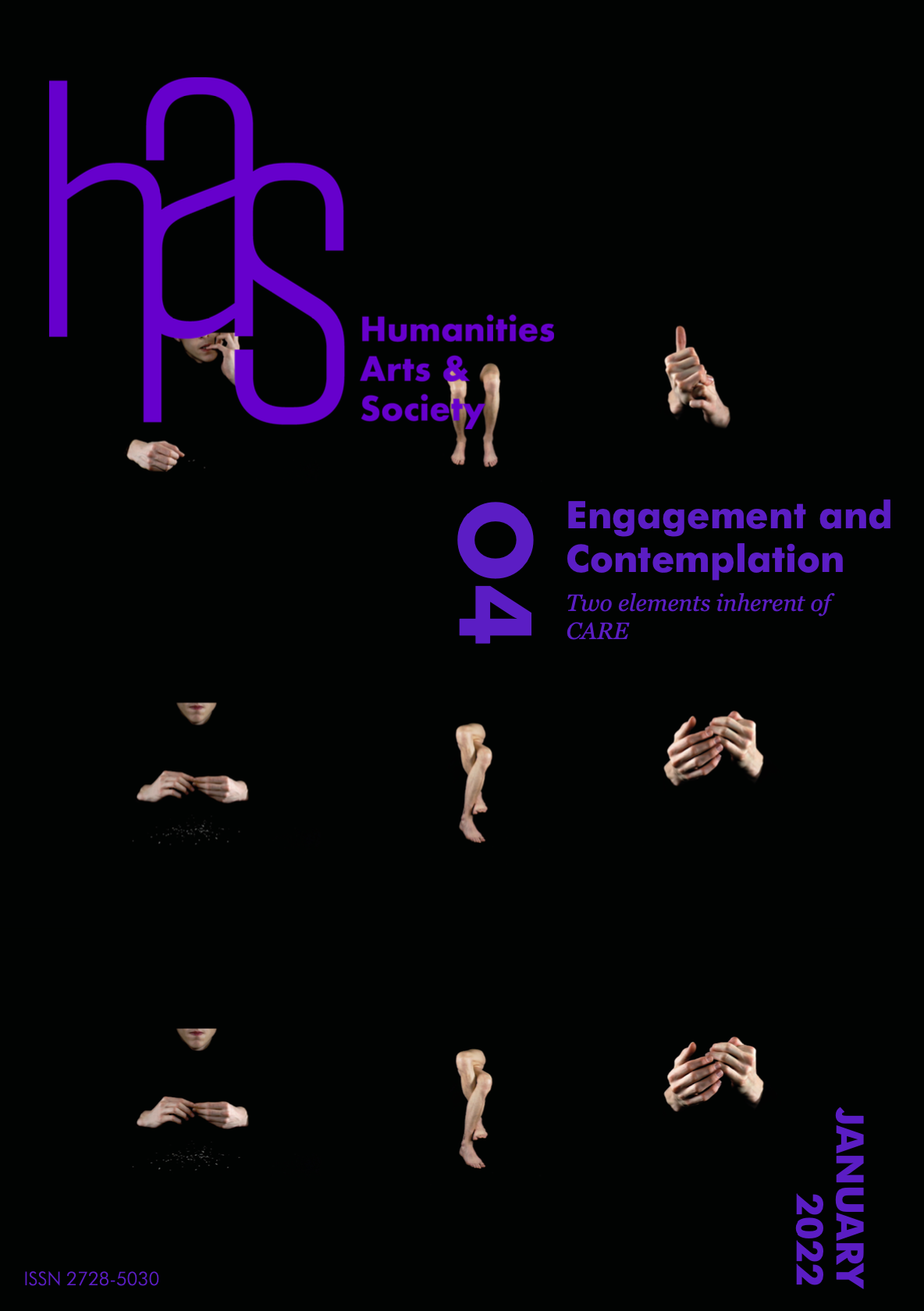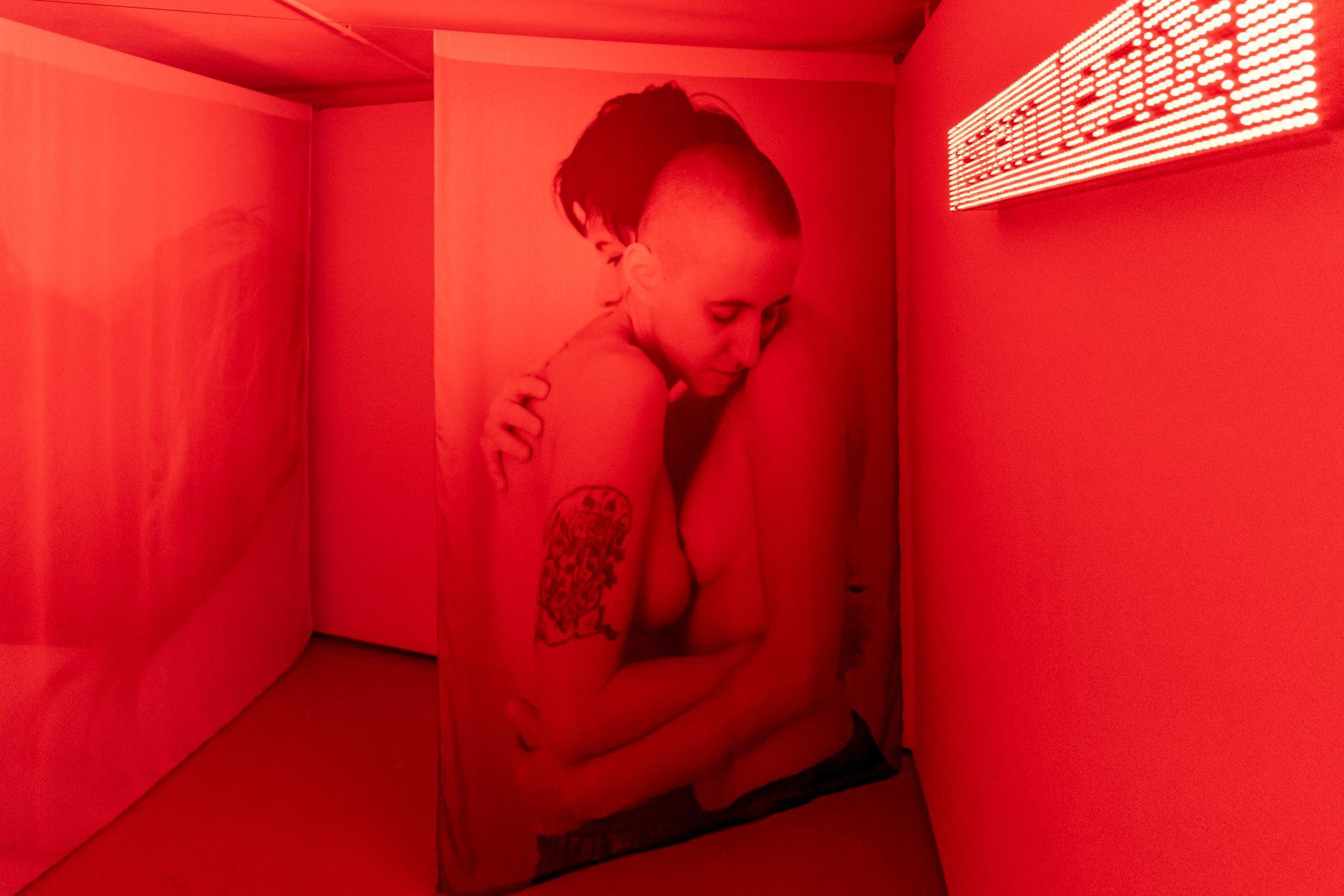
The topic of care is undoubtedly at the centre of our current preoccupations with the environment and our social lives. The ongoing COVID pandemic, global climate change, and the so-called “European migrant crisis” are reshaping our vision of the world, and pushing western societies in particular to switch from their capitalistic exploitation of the planet and “developing countries” to more responsible, sustainable relationships based on care and engagement. These examples show the scale of the problem in the global socio-political context that inevitably involves the implementation of an institutionalized care system. However, on a more individual level, gestures of care, when performed in public, can also become a powerful subversive strategy, and can serve to redefine the political space within our societies. For example, the fight for minority rights is a situation in which gestures of care can be employed for this purpose. This article focuses on the individual and collective dimensions of care as represented in contemporary art. By analysing a specific art project, I aim to explore the way in which contemplation and engagement may be combined, and used by an artist to convey a clear political message without employing provocation or any other openly aggressive aesthetic strategy.
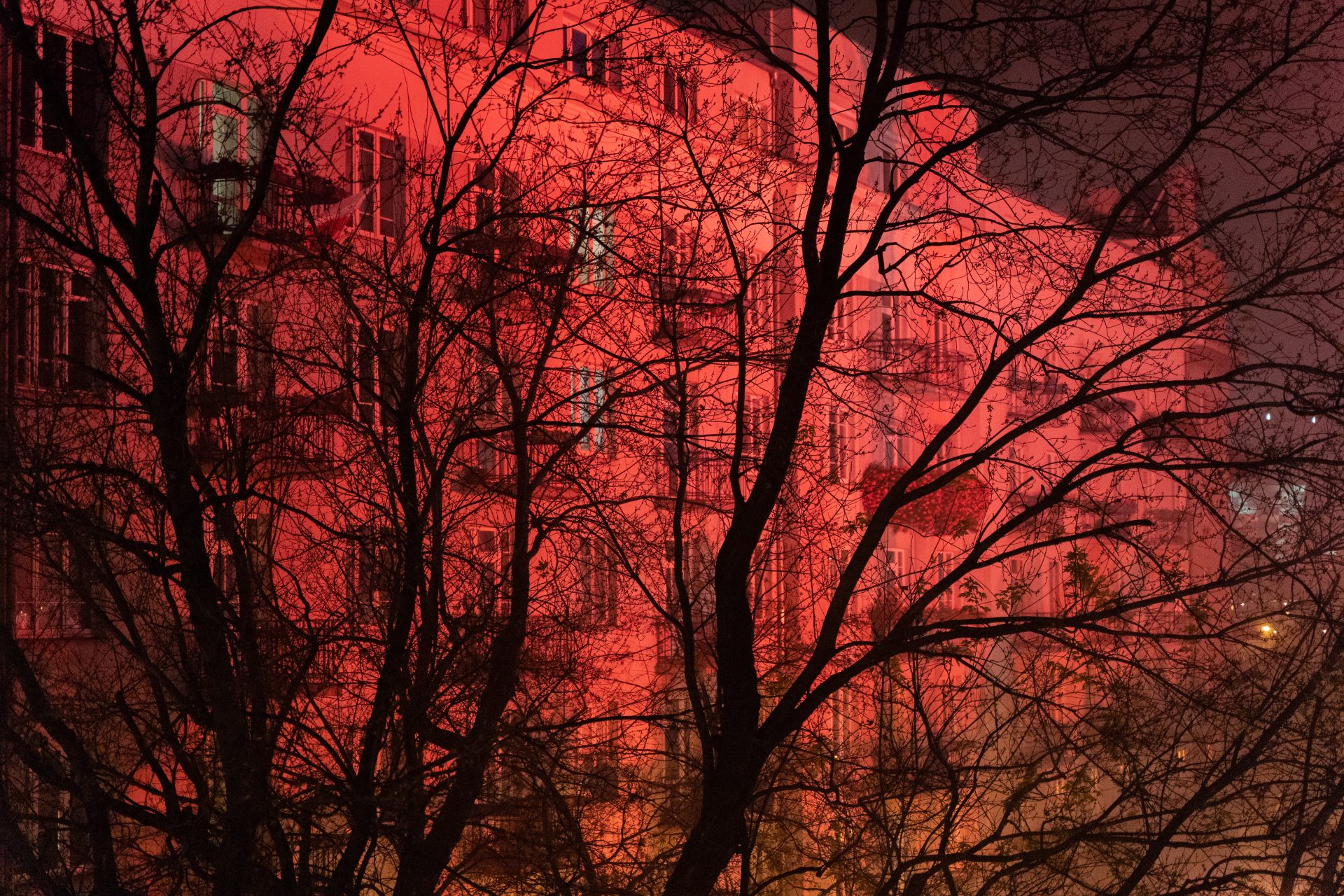
If you are ok, I am ok is an art project that was started in 2018 by Karolina Sobel, a Polish-German visual artist, who describes it as her artistic coming-out1 and personal contribution to the debate about the perception of the queer community in today’s Polish society. The project consists of about thirty photographs revolving around the notion of intimacy and care in gay and lesbian couples. The artist explains: “The queer identities are explored through the depictions of intimate portraits and fragmentary scenes of the city. I consider the human body in comparison to the body of the city and nature.”2 In her project, Sobel tries to create a connection with her models, who are members of the Varsovian LGBTQI+ community, to make them comfortable in front of the camera and to capture moments of natural intimacy—ephemeral gestures of love and care toward one another. In If you are ok, I am ok, we find pictures of lesbian couples cuddling together, detailed photographs showing entwined hands, body parts, or hands touching bodies, but also portraits of individuals.
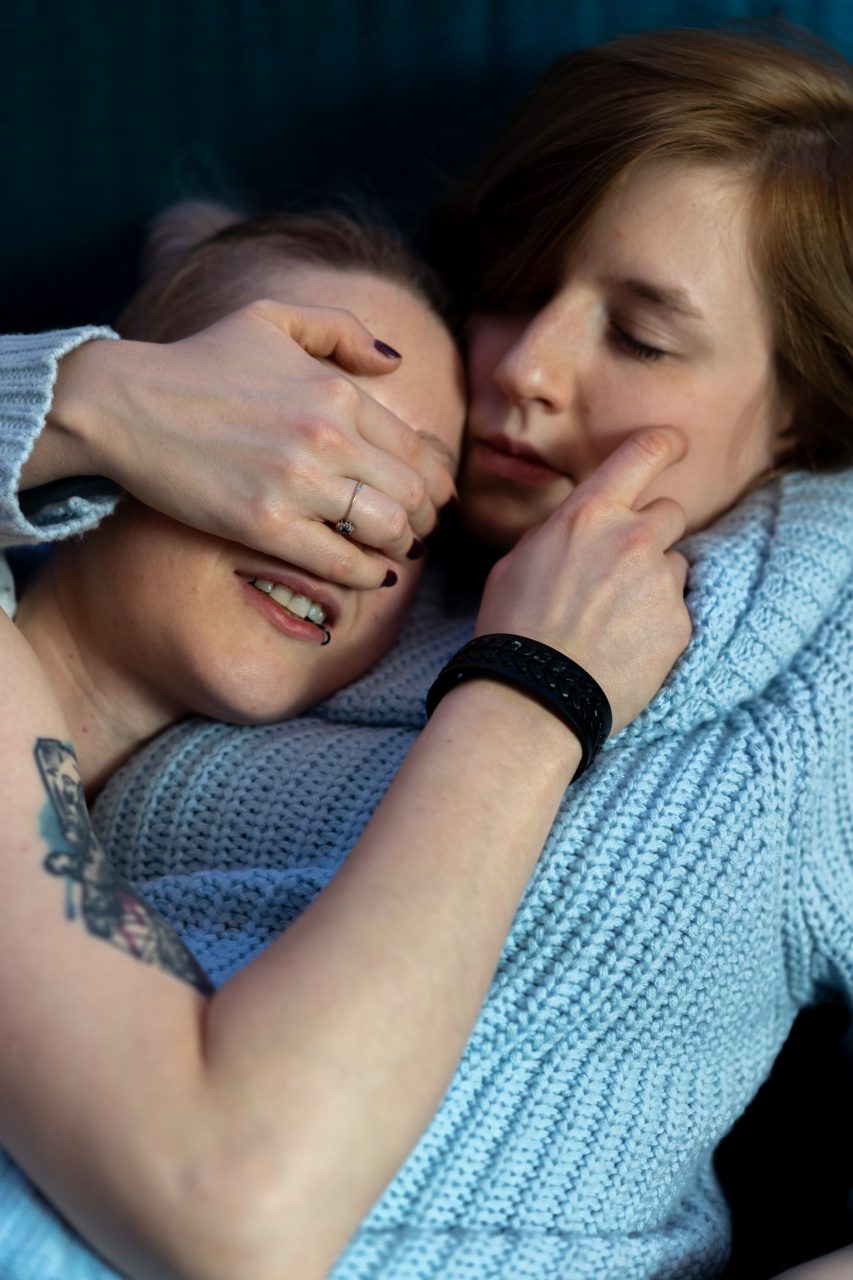
In the presentation of her project, Sobel stresses the bi-dimensional character of care in a relationship. On the one hand, care is “other-oriented.” Caring for another person is, next to passion and commitment, one of the most evident elements of love, in which one expresses respect, comprehension, and sympathy toward the other individual.3 On the other hand, a healthy relationship should also include self-care, in a more profound way that translates into self-reflection, gestures of self-acceptance, and self-love. Sobel writes:
Caring is a very vulnerable and fragile, often invisible notion. It invokes concepts of intimacy, closeness, and communication with others. Care embodies the essence of personal disclosure. Building a relationship requires mutual energy and honesty in order to find yourself settled in at the identity of the other, without losing your own identity at the same time.4
This is what she intends to capture in her project, in which space is given not only to couples, but also to individuals who agree to show their vulnerability to the photographer. Moreover, Sobel’s choice to not limit her exploration of fragility and intimacy to the representation of human beings, but rather to create a dialogue between people, nature, and the environment by including images of changing seasons and city spaces, allows us to broaden our reflection on the notion of care and contemplation.
Embodied care and contemplation of nature

The very title of the project If you are ok, I am ok evokes the sentiment of a relationship based upon sympathy and care. The artist borrowed the phrase from an event organized in Warsaw by the queer collective Kem. The notion of caring for one another is particularly present in the LGBTQI+ community in Poland—as well as in other countries unhospitable to queer people—and has not only a personal, intimate dimension but a collective one. Knowing that others are safe from aggression or mockery and are loved and happy becomes a source of individual comfort for other members of the community. Mutual care is, then, one of the bases of this community, and we can feel it through Sobel’s pictures even though the majority of them represent couples or individuals, not a larger group. Only the first image contains more than one or two people—it shows a group of young people relaxing together on the ground in the light of a street lamp. The artist opens the project with this group picture with the intention of allowing us into their community, but we very quickly become more intimate with her models. We are invited into their homes, we see them alone, calm, or nostalgic, or with their partners, close to one another, as well as close to us. This is at least one of the impressions the observer can have when viewing this project—evoking the feeling of immersing herself or himself into the private space of the artist’s models.
This is because Sobel gets extremely close-up with her camera, tightly framing her shots. Photographs showing full silhouettes are rare. Most of the time, we can see only the upper body of the subject, or selected details—a neck, a hand, a tattooed arm. It is her models who decide how close she can approach them, how much they want to reveal, and which element of their intimacy they are comfortable with showing to the project’s audience. With this selection of images, the artist succeeds in creating a subtle tension between the solitary women and men and the cuddling couples. The natural contact of mostly naked bodies makes us feel that the partners are intimate with each other, evoking sincerity in their skin-to-skin contact and the visual exposure of imperfect, vulnerable bodies. Thanks to this, the emotional connection of the audience to Sobel’s models emerges even more naturally.
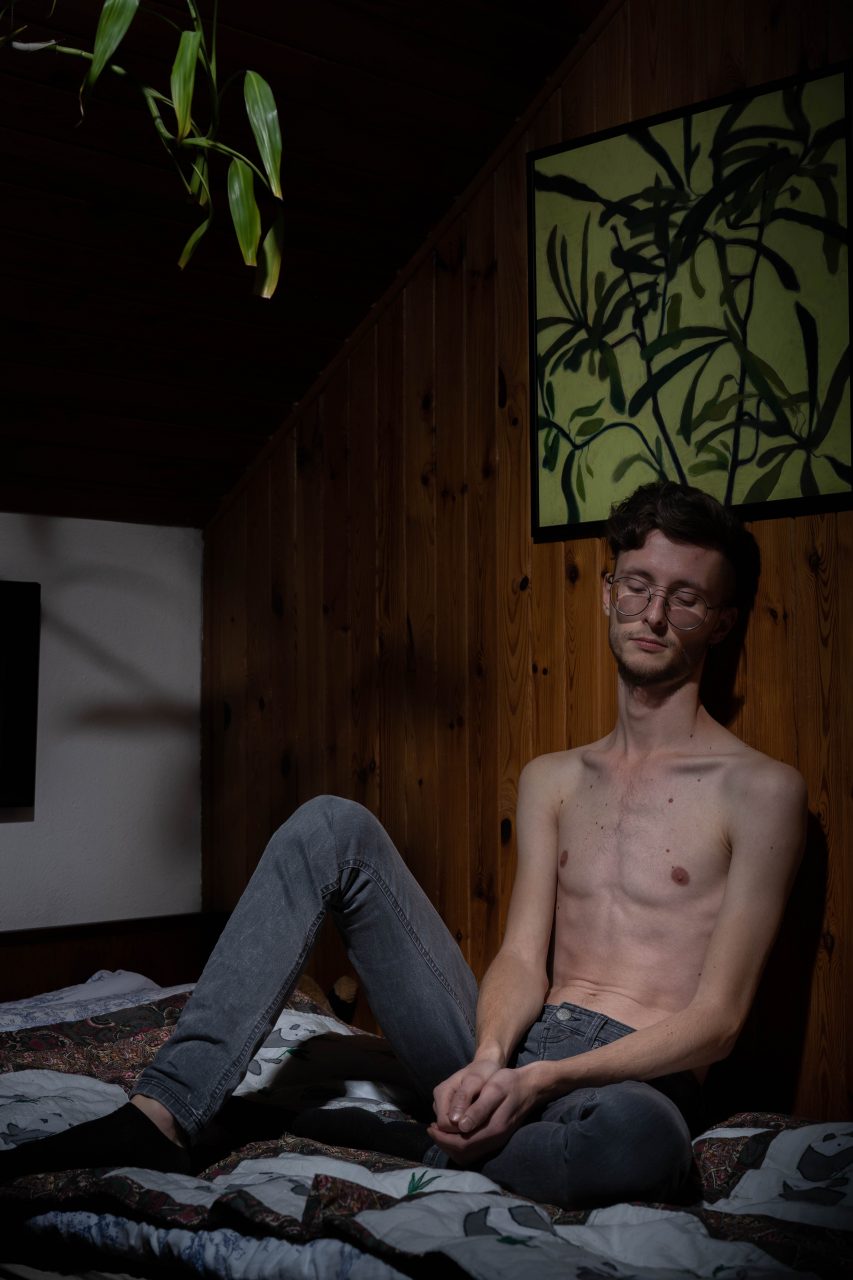
There is no doubt that this project also contains a reflective dimension. The artist contemplates her models, carefully and empathetically observing every gesture and detail. In If you are ok, I am ok, she considers and celebrates the intimacy of love and the beauty of partnership, but there is also self-love and self-acceptance emanating from the bodies posing in front of her camera. In an interview with the Polish lesbian magazine Sistrum5, she referred to sociologist Anthony Giddens’s theory of the “pure relationship”6 to explain how she sees gay and lesbian couples. For Sobel, the members of the queer community build some of the healthiest relationships, based upon love, mutual care, and shared desires. There is no sense of duty or social convention that can intervene, as they can with traditional couples—the care between the partners is not faked or forced. Showing this “pure love” and care between queer couples to the audience, especially in Poland, means normalizing queer love and queer sexuality. In other words, with her project, Sobel tries to demonstrate that this kind of relationship does not differ from heterosexual relationships established on true feelings. On the contrary, they are pretty much the same—natural and sincere, so totally “normal.” The taboo is overturned here in the gentlest manner, without provocation.
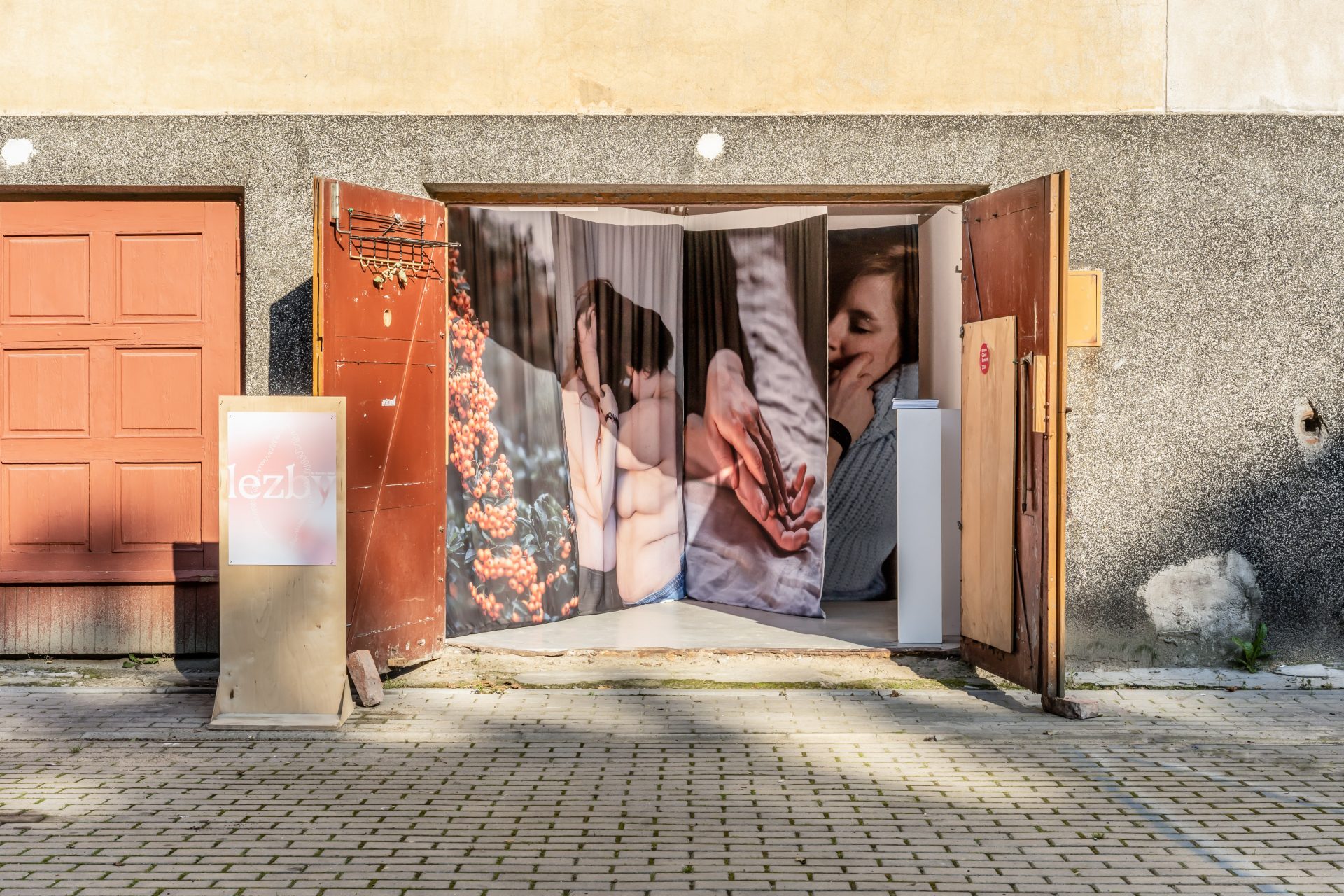
Furthermore, by choosing to represent care through the intimate contact of bodies, Sobel engages the spectator’s feelings and capacity to relate to other human beings. As the care theorist Maurice Hamington explained in his book Embodied Care: Jane Addams, Maurice Merleau-Ponty, And Feminist Ethics (2010), the body is central to care ethics. We learn, experience, and express care through our bodies, and in this way they have a direct influence upon our morality. Hamington proposed the term “embodied care” to stress this close relationship between body and care because the latter requires the first. It is important to remember that our bodies have unique cognitive and physical capacities to care for others, and that this can not only inform our individual daily lives, but can also have an impact on the development of social forms of care and, in a broader sense, the shaping of social norms. Hamington’s conception of care involves the three embodied dimensions of “caring knowledge,” “caring habits,” and “caring imagination.” These three dimensions are closely related to each other, and are responsible for our capacity to sympathize with others and show them empathy and care. They are components of ethical and moral behaviour.
If you are ok, I am ok allows us to better get to know the queer community and queer persons. We can see them caring for each other, involved in everyday habits of care. We can imagine their lives and feelings, which translates into our capacity to easily relate to their experience. In the end, the more we know about and can empathize with them, the more we care about them and their right to feel free and to integrate into society. This is the progress that Sobel hopes to gain by exhibiting her project in Poland, a country that for the last couple of years has systematically been becoming more and more homophobic.
In an intimate relationship
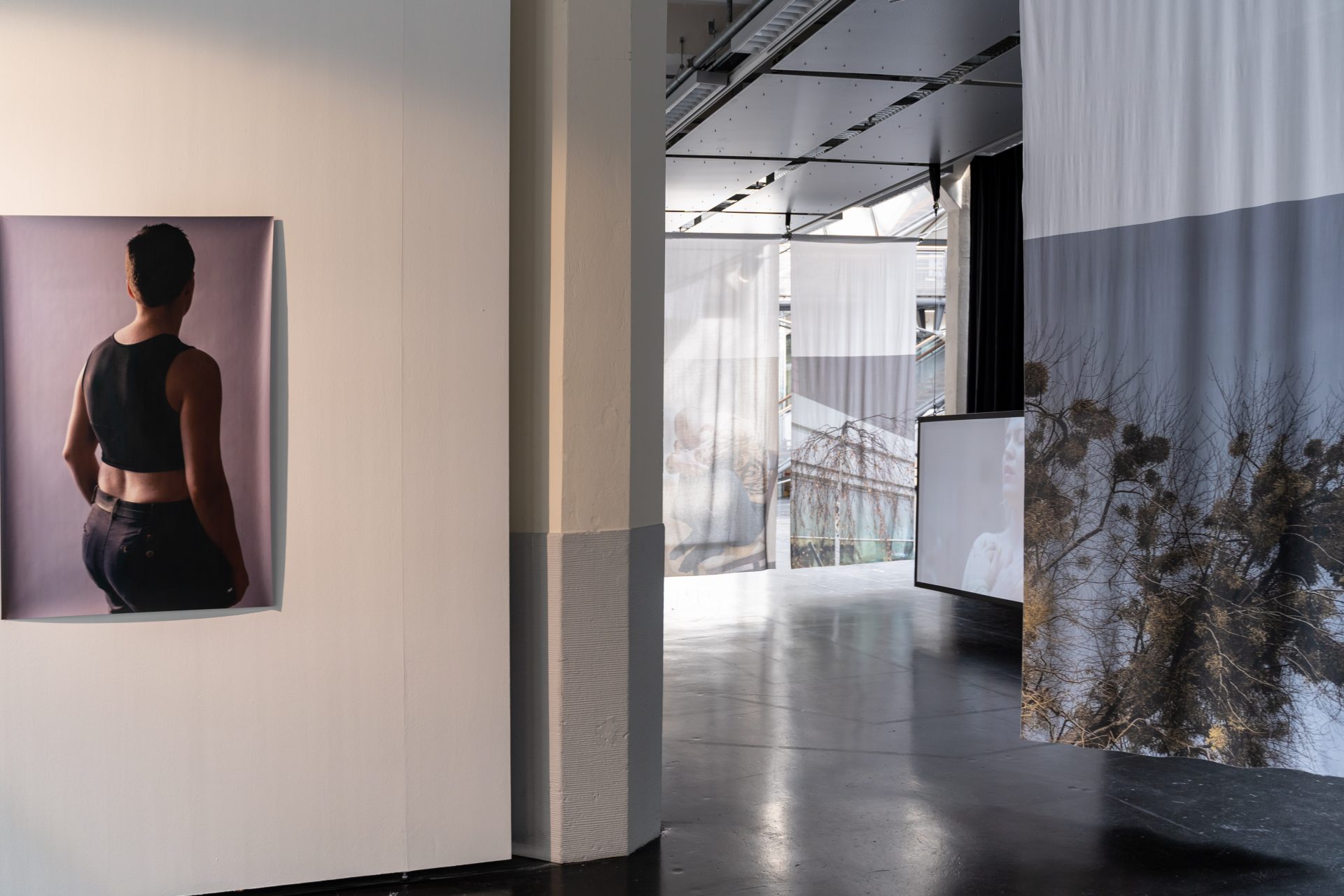
The way space is arranged during Karolina Sobel’s exhibitions plays an important role in the reception of the project. The photographs are presented on textiles and ephemeral materials such as veils, poster prints, or wallpaper. They are printed in large scale, and paired to create human/nature or human/city combinations. In this manner, the artist suggests a fluid connection between people and their environment—nature changing organically with passing seasons, and the cityscape appearing sometimes empowering, sometimes hostile, even threatening. Like the portraits of people, these pictures are also very contemplative and sensual. A tree in fruit next to a hand gently resting on a knee, a car covered with snow next to a cuddling couple, or a melancholy leafless tree next to a solitary huddled man evoke a range of emotions and sensations. Warmth and cold, awakening and fading—all the elements of a cycle of nature, life, and human relationships are present.
There is also another important aspect of Sobel’s installations. In most locations, the photographs printed on veils were disposed in strategic positions in the exhibition space—at the entrance or in the centre of the room—in order to provoke a natural interaction between the audience and the artworks. This was the case during what may have been the most meaningful of Sobel’s shows, the one in the Varsovian Stroboskop gallery in Warsaw, where visitors were welcomed by huge semi-transparent veils showing images of a lesbian couple and nature. The physical contact with this organic material became a first, very intimate, step into the world of queer love and care.
In other exhibitions, Sobel chose to adapt to the context. The display in the Karlsruhe University of Arts and Design, where the artist first showed this series as her graduation project, was accompanied by a sound installation composed of female voices reading fragments of Carolin Emcke’s autobiography How We Desire (2013). In her book, the German journalist and essayist interweaves memories of her discovery of homosexuality with a more general reflection on social norms and how they affect our identities. In one of the fragments, Emcke asks a series of hypothetical, yet striking questions which clearly expose the preoccupations of queer people facing a cisnormative, heterosexual world:
The myth of authenticity, so often asserted in good faith, proves to be a trap because it denies the ambiguity of seeing and reduces the diversity present in all identities to one “genuine,” “true” form that ends up hemming us in. What does “authentic” mean anyway? How “authentic” are we? Am I ‘”authentic”? How similar must we be? What about all the other aspects that make us the individuals that we are? Does sexuality really take precedence over everything else? Do our other defining features melt away in the face of sexuality? Isn’t it a lie that class, origins, sex, religion—all the other markers of identity—play no role in distinguishing us? What about the other perspectives, the other ways of looking at shame, intimacy, social confidence and vulnerability that can make a difference to our acceptance and visibility in everyday life?7
These questions resonate particularly well with the photographs of Karolina Sobel because, in her project, she challenges this univocal perception of homosexuals within society, especially in a homophobic society, only through the lens of their sexuality. Disenchanting this view—showing the universality of gestures of love and care—helps to redirect the spectators’ attention toward what we, as humans and members of society, have in common, despite the differences.
The personal and political engagement
The fact remains that since the takeover of power in Poland by the right-wing Law and Justice party (PiS), the LGBTQI+ community has been treated as “the public enemy” and vilified in the state media. Disdainful TV clips about the defenders of LGBTQI+ rights were also used by Sobel during the presentation of her project in the Croatian Galerija Šira, which resulted in the creation of a very specific contrast between the barely-concealed hate speech of the public media and the images of young people and loving couples emanating with calm.
The previously-mentioned exhibition that took place in Poland in summer 2020 at Stroboskop was the most symbolic and important of Sobel’s exhibitions for many reasons. First, Sobel treated it as a manifesto, a public artistic coming-out, and an individual confrontation with the current situation of the queer community in Poland. Second, it was her way of entering into a dialogue with the Polish queer art scene and contributing to the debate on today’s queer identity in the Polish context. The If you are ok, I am ok project was presented at Stroboskop as the main part of an exhibition entitled Lezby, which is the negatively-charged Polish variant of the term “lesbian.” The artist decided to reclaim this invective in order to turn it into an affirmation. She considers this act provocative but, above all, empowering.
The focus in this exhibition on lesbian identity and lesbian perspective is also deliberate. With her choice of title, Sobel referred to one of the most discussed shows in the history of Polish queer art, Pedały (Fags), organized by Karol Radziszewski in 2005 in an apartment in Warsaw. Radziszewski’s exhibition marked a moment in the local art scene when the LGBTQI+ community started becoming visible, but all of the attention was then given to homosexual men and their experiences. Fifteen years later, Sobel decided to ask for a place for lesbians because, as she argues, “queer/homosexual history is not only a male history.”
In this exhibition, she tackled not only the specificity of women’s and lesbian’s ways of loving and caring for others, but also the stereotypes associated with lesbians in popular culture. The artist catalogued and played with common representations of lesbians proliferating in contemporary visual culture, such as a woman with a weapon, women in suits—butch, diva, tomboy, etc.—to show society’s need to categorize people in order to come to grips with their supposed difference. The minimalist, but very straightforward neon sign with Jestem lezbą (I am a lesbian) inscribed in red light, illuminated the space and represented the “final affirmation” of Sobel’s queer identity, but also, in a broader sense, was a symbol of the readiness of Polish LGBTQI+ community to finally “come out of the closet” and become visible in public, which can be achieved, at least partially, thanks to projects like this. In a country where some small cities and villages have recently declared themselves “LGBT-free zones,” these self-affirmations and signs of openness to dialogue sound even louder, and seem very much needed.
References
1Karolina Sobel, “Chciałam zrobić artystyczny coming out. O projekcie “Lezby” z fotografką Karoliną Sobel rozmawia Agnieszka Małgowska,” AAAKulturalnik, Accessible online: http://sistrum.org.pl/wp-content/uploads/2020/07/AAAKulturalnik_SRLK_-Karolina-Sobel_Lezby.pdf.
2Karolina Sobel, If you are ok, I am ok – project presentation, http://www.karolinasobel.com/portfolio/if-you-are-ok-i-am-ok/.
3Ibidem.
4Ibid.
5Karolina Sobel, “Chciałam zrobić artystyczny coming out…”
6Anthony Giddens, The Transformation of Intimacy: Sexuality, Love and Eroticism in Modern Societies. Cambridge, Polity, 1992.
7Carolin Emcke, How Do We Desire. Melbourne, Text Publishing, 2018.
8Karolina Sobel, If you are ok, I am ok – project presentation…
Emcke, Carolin. 2018. How do we desire (Melbourne: Text Publishing)
Hamington, Maurice. 2010. Embodied Care: Jane Addams, Maurice Merleau-Ponty, and Feminist Ethics (Urbana & Chicago: University of Illinois Press)
Giddens, Anthony. 1992. The Transformation of Intimacy: Sexuality, Love and Eroticism in Modern Societies (Cambridge: Polity)
Sobel, Karolina. 2020. “Chciałam zrobić artystyczny coming out. O projekcie “Lezby” z fotografką Karoliną Sobel rozmawia Agnieszka Małgowska,” AAAKulturalnik, Accessible online: http://sistrum.org.pl/wp-content/uploads/2020/07/AAAKulturalnik_SRLK_-Karolina-Sobel_Lezby.pdf
Sobel, Karolina. 2019. If you are ok, I am ok – project presentation, http://www.karolinasobel.com/portfolio/if-you-are-ok-i-am-ok/.
Ewelina Chwiejda is an art historian and researcher based in Paris. She specializes in socially engaged art and completed her Ph.D. in Art History and Theory, defending her dissertation on the representation of the “European migrant crisis” in the media and contemporary art. In her scientific work, she privileges an interdisciplinary approach merging methods of art history, visual studies and sociology. She is also a member of the editorial board of the French scientific journal Images re-vues published under the auspices of CNRS/EHESS and an art critic.
Karolina Sobel is a Polish-German visual artist. In 2019 she graduated from the Faculty of Media Art at the University of Art and Design (HFG) in Karlsruhe. She holds a Master’s degree in urban planning from Darmstadt University of Technology. She also studied visual arts at the IUAV in Venice. Karolina uses various media, mainly photography and video, with a documentary approach aimed at blurring the line between fiction and reality. Her interests include modes of representation of social topics (such as identity, building communities, and social exclusion)
Ewelina Chwiejda is an art historian and researcher based in Paris. She specializes in socially engaged art and completed her Ph.D. in Art History and Theory, defending her dissertation on the representation of the “European migrant crisis” in the media and contemporary art. In her scientific work, she privileges an interdisciplinary approach merging methods of art history, visual studies and sociology. She is also a member of the editorial board of the French scientific journal Images re-vues published under the auspices of CNRS/EHESS and an art critic.
Karolina Sobel is a Polish-German visual artist. In 2019 she graduated from the Faculty of Media Art at the University of Art and Design (HFG) in Karlsruhe. She holds a Master’s degree in urban planning from Darmstadt University of Technology. She also studied visual arts at the IUAV in Venice. Karolina uses various media, mainly photography and video, with a documentary approach aimed at blurring the line between fiction and reality. Her interests include modes of representation of social topics (such as identity, building communities, and social exclusion)
